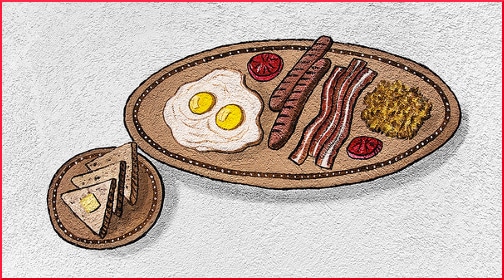
“You are what you eat! Eat animal fat and you’re a fat animal!” This maxim was so universally accepted it would not be surprising to find it embroidered on a pillow. Like many other received truths, this one turns out to be not exactly true.
In one of the biggest (and longest, at 50 years) con games ever perpetrated, an unsuspecting public was sold a bill of goods. Last year the world learned about the duplicity of the sugar industry, which paid obesity researchers to blame fat rather than sugar. But even before that, some people had questioned the orthodoxy.
The Guardian‘s Joanna Blythman pointed out two things wrong with the blanket warnings against animal fats, and especially red meat. First, few of the frantic doomsayers took the time to differentiate between extensively processed factory-farm product laced with preservatives and other chemical additives, and fresh meat from decently raised animals.
Blythman wrote:
Meanwhile, no government authority has bothered to tell us that lamb, beef and game from free-range, grass-fed animals is a top source of conjugated linoleic acid, the micronutrient that reduces our risk of cancer, obesity and diabetes.
Evidence continued to stack up, refuting the claims that saturated fat is all, and always, bad. A meta-study carried out by the British Heart Foundation examined 72 studies that encompassed the health histories of more than 600,000 subjects. Astonishingly, it found that the consumption of saturated fat did not really line up with risk for coronary disease.
Heretical dissent
This revelation was the equivalent of declaring that the earth revolves around the sun, when for centuries everyone was convinced that the opposite was true. The establishment did not want to accept the obvious, and even the British Heart Foundation itself balked at giving an on-the-record endorsement. A representative told the press that there was not enough evidence to confidently issue new healthy eating guidelines, so the meta-study’s findings “did not change the advice that eating too much fat is harmful for the heart.”
Collateral damage
Egg-lovers suffered for years because of the unimpeachable “fact” that we should eat no more than two eggs a week, because they contained heart-stopping cholesterol. Chicken farmers went out of business, and people learned to eat tortuously processed, sugar-saturated grain atrocities for breakfast. Then it turned out that eggs are not hazardous after all.
People were advised to shun butter, lard and other saturated fats, and taught to prefer margarine. Around 2010, the industry finally admitted that “the chemical process for hardening polyunsaturated oils in margarines and spreads created artery-clogging trans-fats.” Meanwhile, other research indicated that protein and natural fat are “the two most useful macronutrients.”
Low-fat processed foods are not remarkably delicious on their own. Add massive injections of sugar and salt, wrap it in a gaudy package, and they’ve got a winner. By promoting ignorance and spreading propaganda, the industry had its way.
The writer notes that…
The crucial phrase “avoid processed food” appears nowhere in government nutritional guidelines…
Yet that warning would save more lives than any other.
Your responses and feedback are welcome!
Source: “How the Sugar Industry Shifted Blame to Fat,” NYTimes.com, 09/12/16
Source: “Why almost everything you’ve been told about unhealthy foods is wrong,” TheGuardian.com, 03/22/14
Photo via Visualhunt

 FAQs and Media Requests:
FAQs and Media Requests: 












One Response